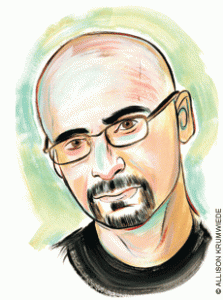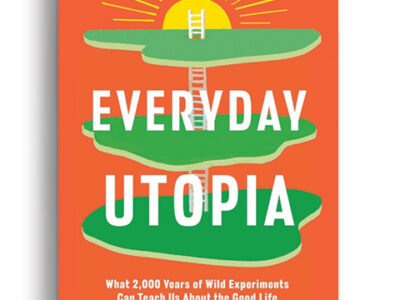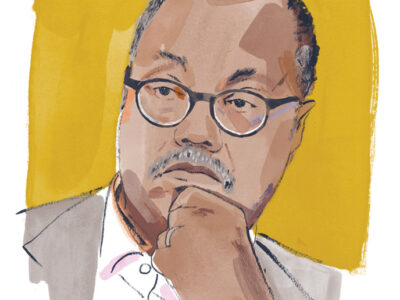When Junot Díaz spoke at the Penn Humanities Forum this past November, he began by talking about his early desire to become an historian, specifically a “Caribbeanist” along the lines of Penn’s Steven Hahn. Though he soon turned to fiction, in part because of the vast “silences and erasures” that constitute the history of that region, Díaz never lost his interest in exploring those “absences” and their influence on modernity. The results include such highly praised works as The Brief Wondrous Life of Oscar Wao,Drown, and This Is How You Lose Her , which have earned him plaudits ranging from the Pulitzer Prize for fiction to Guggenheim and MacArthur fellowships.
Born in the Dominican Republic, Díaz moved at age 6 to Parlin, New Jersey, where his father was living, and his experiences on both sides of the immigrant and racial experience have provided him with plenty of raw material. These days, the 44-year-old Díaz teaches creative writing at MIT, and is working on a science-fiction novel.
Nothing reminds me of what’s at stake more than when I asked my grandfather about his grandparents, and my grandfather said, “Of them, no record exists.” It’s a strange thing to belong to a community, to a family, or people [in] a region where the blank spaces are larger than the lived spaces, and where nothing exists beyond the darkness of one generation. There’s almost no record. And as hard as I pushed, I could not get any more information.
In some ways, this traumatic, ruptured discontinuity, of being a person of African descent in the Caribbean, guaranteed these silences and erasures, getting stranded in the large continuum of what we call history. And I never stopped struggling against that.
This is actually a normative outcome of coloniality. You can’t put millions of people to death by working them, nor put millions of people to death through the sort of conquests dealt to indigenous communities, without these scars being in many ways the body.
We always joked around with my grandfather, when he was still alive. And we said, “Grandfather, we have more scar than body.” And he was just like, “So what?” The guy never had any patience. He’d be like, “So fucking what?” I was like, “Okay, that’s not a bad way to start a project.” Or, in my case, start a career. —S.H.





